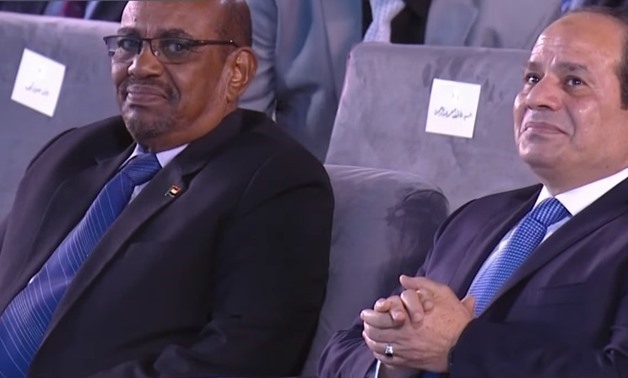
President Abdel Fatah al-Sisi during the celebration of Egyptian family at Cairo International Stadium Monday March 19, 2017 - Photo courtesy of YouTube
CAIRO – 13 May 2018: The relations between Egypt and Sudan can be described as “Holy”, Sudanese Deputy Prime Minister and Minister of Information Ahmed Bilal Othman said in a press statement on Sunday.
Othman said that the relation between the two countries is at its best as the communication channel is open between Egyptian President Abdel Fatah al-Sisi and his Sudanese counterpart, Omar Hassan al-Bashir.
Othman asserted the importance of the Egyptian-Sudanese cooperation to confront terrorism, assuring that exchange of security information is one of the main areas of cooperation between the two countries.
"Egypt has been fighting terrorism for a long time and it has gone a long way in combating terrorism," he added.
The two Nile River neighbors, Egypt and Sudan, have common bonds of history, language and religion. But, diplomatic relations have been frosty over the past years due to various reasons.
In March, Sisi received Sudanese President Bashir where they both discussed the most important issues of mutual interest, as based on the agreement reached at the recent Addis Ababa tripartite summit.
“I firmly stress on the long-standing and close relationship between our brotherly countries, promoted by the historical ties and common aspirations,” said the Sudanese president.
The one-day visit of the Sudanese president also focused on tackling cooperation across various fields, as well as issues of joint interest.
Egyptian relations with Sudan were recently strained over the border area of Halaib and Shalatin. On December 23, 2017, Sudan filed a complaint to the United Nations Secretariat to protest a maritime border demarcation deal between Egypt and Saudi Arabia, as the deal denotes the territory as Egyptian on maps.
Halaib and Shalateen, or the Halaib Triangle, is an area of land measuring 20,580 square kilometers, located at the Egyptian-Sudanese border on the Red Sea coast. It is part of the Red Sea governorate and consists of three major towns – Halaib (which became a city in February 2014), Abu Ramad and Shalateen.
The area belongs to Egypt politically and administratively, but has been one of the major sticking points in Egyptian-Sudanese relations since the demarcation of borders between the two countries were carried out during the British occupation of Egypt in 1899, at a time when Sudan was part of the Egyptian Kingdom.
The issue re-emerged after Halaib and Shalateen declared electoral constituency in both Sudan and Egypt in 2014.
Egypt affirmed that it has never concluded any international treaties or agreements, whether with the U.K. or Sudan, to give international status to the demarcation of administrative borders.
The largest tribes that inhabit Hala'ib Triangle, including Rashaida, Alababdeh and Bashaira, rejected the Sudanese National Election Commission's decision that granted the people in Hala'ib the right to participate in Sudanese general elections. The three tribes asserted during the 6 October War victory celebration in 2009 that the area is 100 percent Egyptian.


Comments
Leave a Comment